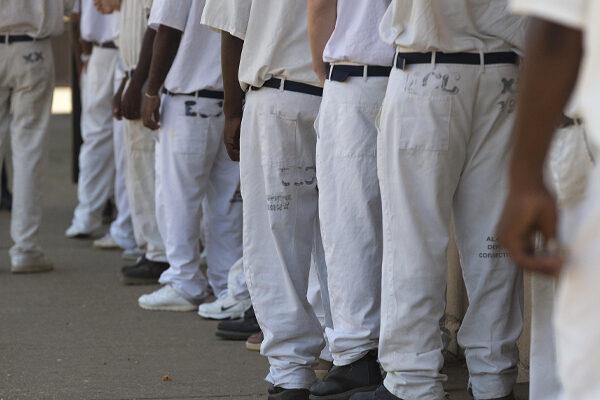Protecting law-abiding citizens from criminals — the government’s most fundamental task — requires prisons. But as the price tag for Alabama’s new prisons rapidly approaches $1 billion each, these costly prisons should make us consider how we make decisions about using corrections facilities.
Our political and justice systems treat prisons as common pool resources, former Florida State economist Bruce Benson recognized. Still, common pools are subject to overuse, often labeled the Tragedy of the Commons, a concept proposed by ecologist Garrett Hardin.
The Tragedy of the Commons arises when many people can use a scarce resource and no one can exclude others. Consider fishing in a lake with public access and no catch limits. A healthy fish population quickly gets depleted, wasting the natural renewal of the fish population and its place as a source of recreation.
Widely held use rights render conservation futile: someone else will catch the fish if you don’t. The benefit of restocking gets similarly dissipated. But a private pond is far more likely to be used reasonably, and we have the state regulate fishing in public waters.
But instead of fishing, let’s consider how we treat prisons as commons.
Every year, state legislators propose bills creating new or lengthened sentences for existing crimes. For example, the Carlee Russell case led to calls for increased penalties for faked kidnappings. Because politicians like to appear to be solving societal problems, criminalizing something looks like a fix, and legislators can take credit. The prison population increases, but appropriations to the Alabama Department of Corrections (ADOC) don’t necessarily do the same, thus earning legislators costless points, a winning political formula that fails to carefully compare benefits and costs.
Neither judges nor prosecutors “pay” the ADOC for the sentences they request or impose. Imposing a 20-year sentence costs the court no more than a 10-year sentence. If the longer sentence provides the victim or victim’s family more solace, the judge and DA earn a costless benefit, building “tough on crime” reputations at taxpayer expense.
I am not soft on crime in the least. The use of force against other human beings disrupts peaceful coexistence, so I support lengthy prison sentences and the death penalty.
Prisons are necessary but costly. The annual cost of incarceration in Alabama is around $15,000 and will likely increase with our expensive new prisons. Economics emphasizes balancing benefits and costs, especially on the margin, and the cost of prisons should include ancillary recidivism and reintegrating ex-cons into productive life.
Underfunding created Alabama’s prison crisis. More significantly, the continuation of current practices ensures continued imprisonment in cases where we as citizens and taxpayers do not consider the benefit to exceed the full cost.
What types of changes might end prisons as commons? To start, suppose every bill increasing criminal penalties had to increase ADOC’s funding to cover the cost. Finding the dollars would force lawmakers to consider the cost and not just pass a law to “solve” some problem.
Prosecutors and judges could receive an annual quota of years of sentences. The quotas could be based on historical crime rates and prison capacity. Several options could avoid quotas letting murderers and rapists go free. Like a cap-and-trade system for pollution emissions, the quotas could be tradeable or bankable in low crime years, or quotas could exempt the most serious crimes. Local jurisdictions could purchase additional years of incarceration from ADOC at cost.
Progressives who view criminals as society’s victims have hijacked criminal justice reform. George Soros-funded prosecutors have implemented reforms without popular consent via prosecutorial discretion. Yet we need reforms to ensure good decisions about incarceration.
Ensuring the criminal justice system considers the cost of incarceration should lead to more appropriate use of alternatives to incarceration. Alternatives should be used when they reduce the total cost of crime plus incarceration, not to avoid jailing violent criminals.
Life always involves tradeoffs, not solutions, economist Thomas Sowell warns, and thus we must recognize incarceration’s tradeoffs. Until we stop treating prisons as common pools, Alabama’s expensive new facilities will not end our incarceration problems.
Daniel Sutter is the Charles G. Koch Professor of Economics with the Manuel H. Johnson Center for Political Economy at Troy University and host of “Econversations” on TrojanVision. The opinions expressed in this column are the author’s and do not necessarily reflect the views of Troy University.
The views and opinions expressed here are those of the author and do not necessarily reflect the policy or position of 1819 News.
Don’t miss out! Subscribe to our newsletter and get our top stories every weekday morning.










